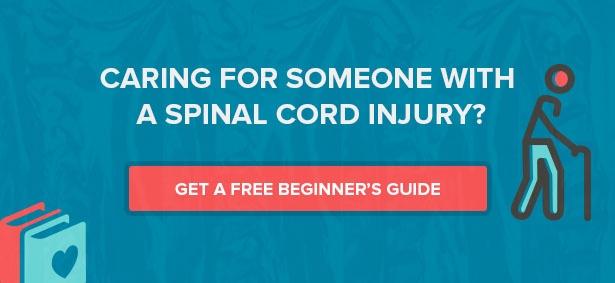Finding a Peer Mentor After Your Spouse Has Been Traumatically Injured
When your spouse has been traumatically injured, their life (and yours) dramatically changes in virtually every way. Suddenly, the independent person you once knew requires intensive, round-the-clock care, physical and occupational therapies, and may not be the same person that they were before the accident. They are likely experiencing a rollercoaster of emotions that they don’t know how to process, and you realize that you’re on the ride of emotions with them.
When your significant other has suffered a spinal cord injury (SCI), a traumatic brain injury (TBI), or a combination of both, it’s only natural to feel like you don’t know what to do from one day to the next. As the supporting spouse, you may feel like you have nowhere to turn for guidance and emotional support. And, although your extended family and friends have been supportive, they may not understand what you’re going through. This is where a peer mentor or peer support group can be of service.
What is a Peer Mentor?
A peer mentor is a person who provides support as well as information. This is an individual who has been in the same or a similar situation as you and can relate to what you’re going through. They can provide you with some invaluable tips and recommendations they’ve learned through their own experiences, such as how to keep your relationship strong after your spouse has been injured, and remind you that you are not alone. This is especially true of spouses who find themselves in the role of caregiver.
In fact, the 2015 Caregiving in the U.S Report from the AARP Public Policy Institute and the National Alliance for Caregiving (NAC) estimates that 43.5 million caregivers provided unpaid support in the previous 12 months of when the report was released. It reports that one in 10 provides care for a spouse, and “higher-hour caregivers,” or those that spend more than 21 hours a week providing care, are almost four times as likely to be caring for a spouse or partner. AARP estimates the economic impact of these unpaid contributions was approximately $470 billion in 2013.
What Peer Mentors Do
Peer mentors serve as an unwavering source of strength during what is, undoubtedly, one of the most difficult times in your life. They also help to provide you with advice and a safe outlet to express what’s weighing on your heart and mind.
They Provide a Compassionate Ear and Support
Sometimes, it helps to just know that someone is there to listen who understands what you’re going through. For example, as a wife of someone with an SCI, you can connect with another wife to share your fears, frustrations, concerns in a safe environment. Or, if you’re the husband of someone with a TBI, you can share those thoughts and feelings with another who has been in a similar situation and may be able to offer guidance or recommendations.
They Help You Learn How to Cope with Your Spouse’s Injuries
What better way to learn how to cope with the variety of veritable emotional, financial, and relationship stresses you’re experiencing than to get advice from someone who has already walked in those shoes? A peer mentor can recommend a variety of lifestyle-related changes or coping techniques that you may want to try that have helped them in their own journey.
They also can provide you with some recommendations about how to balance your life and all of its roles, such as being a spouse, caregiver, and parent. When you receive coping advice from someone who has lived exactly what you have gone through, you know that it’s worth listening to.
They Offer Tips to Help with Daily Caregiver Tasks & Health Issues
A significant benefit of linking up with a peer mentor is that they can provide a wealth of information about how to handle some of the daily tasks you perform when caring for a loved one. This can include time-saving tricks, ways to handle specific issues, or things they have learned to avoid.
They also can provide information that doctors may forget to mention about caring for your loved one. This can range from how to handle some of the secondary health conditions that result from your spouse’s injury to even tips about sexual interactions to try with your spouse.
They Make Recommendations about Service Providers to Try or Avoid
In addition to all of the benefits already mentioned, a peer mentor also can recommend rehabilitation centers that your spouse should try or avoid. They also can provide you with advice in other areas, such as how to find a reputable and experienced spinal cord injury lawyer or even lawyers you should avoid based on their experiences with pursuing a spinal cord injury lawsuit on behalf of their spouse.
Where You Can Find a Peer Mentor
Some hospitals and rehabilitation centers offer support programs for both inpatients and outpatients and their families. Additionally, you can find peer mentors and peer support groups through SpinalCord.com’s online community as well as on websites like the Dana & Christopher Reeve Foundation.
There are peer support groups located throughout the United States. Use our interactive map to find a support group for your injured spouse or for you as a family caregiver.
To learn more about ways to care for your spouse who has suffered a traumatic injury, check out our free resource by clicking on the image below.
Stay Updated on Advancements On Traumatic Brain &
Spinal Cord Injuries
About the Author





